- Home
- Tamara Leigh
Baron of Godsmere Page 11
Baron of Godsmere Read online
Page 11
“I shall bring her back,” he announced and touched his sword hilt, next his misericorde.
“My lord?” Father Crispin called.
Bayard shook his head, causing the priest to halt his advance. “Later,” he once more put off the priest’s attempt to counsel him and almost wished he had denied the man’s request to accompany his lord to Castle Mathe.
He turned away. Thomasin could have no more than five minutes on him, and if she believed it was enough to escape him, she was more the fool. As a horse would sooner alert her to his pursuit, he stalked past the tent’s remains.
Easy prey, he told himself. A woman alone. Hindered by skirts. The dark of night. The cold of winter. And there, distant from the heat of the fire, he found footprints in the crisp snow that showed she moved toward one of the three who guarded the camp’s perimeter.
Bayard would have smiled were it possible to work such an expression onto his mouth. He followed her footprints as the dying fire of her guile cast a path for him, then continued onward by the light provided by the bit of moon. Reliant more upon instinct than sight, he paused often to listen to the wood, and finally caught the sound of branches snapping underfoot.
Setting his dagger before him lest he encountered a beast of the wood, he lengthened his stride. And cursed when he caught sight of the knight who guarded this portion of the wood. Where had Thomasin gone?
El hugged the trunk tighter, carefully shifted her weight on the branch from one numb thigh to the other as she glanced through the barren trees at the knight who witnessed his lord’s anger.
When she had trod the branch beneath the snow, its snapping had crackled across the chill air and she had known it must be heard. Thus, she had climbed the nearest tree—a difficult feat. She had scraped her palms, the backs of her hands, her cheek, and for all that had gained only five feet above the ground.
Broken fingernails, a scratched wrist, and a torn skirt had seen her up the last ten feet she had managed before The Boursier appeared, crushing all hope it would be believed she had perished in the fire.
Praying the warmth generated by fear and flight would outlast Boursier’s presence where he stood thirty feet out, El lowered her chin and gave her heated breath to her chest.
“My lord!” the knight hailed. “Something is awry?”
“Lady Thomasin has gone to the wood.”
The dark figure of the knight halted before Boursier’s formidable bulk. “I have seen naught of her, my lord.”
“And heard naught?”
El held her breath.
“I heard something, and for it left my post.”
Having hoped Boursier would assume the sound was made by the knight and the knight would think it made by his lord, El inwardly groaned.
“She is near,” Boursier said.
A breeze stirred the barren branches of the surrounding trees, and she knew the shudder that went through her was as much of fear as the cold piercing her garments.
“Return to your post and remain alert,” Boursier ordered.
“Aye, my lord.”
Barely breathing, El watched Boursier who stood unmoving—doubtless listening.
Lord, let me not be had, she prayed. Let him not look to the tree tops. After all, no lady would scale a tree. Would she?
His chin rose, though not high enough to carry his gaze to the branches. “Lady Thomasin!” he called. “It shall go worse for you if you do not yield now.”
He did not know what worse was, but come the morrow, she would know if she surrendered. Pressing her teeth into her bottom lip to keep from scratching at the itch crawling her spine, she waited for Boursier to resume his search.
He did not, as if he knew she was within reach, as if he had but to wait for her to come to him.
The itch nearly unbearable, she squeezed her eyes closed and tried to imagine scratching it, but the vision did nothing to lessen the prickle of her flesh.
“Now!” Boursier shouted.
She flipped her lids up and picked out his dark figure just as he raised his head.
Hugging the tree tighter, sending up a fervent prayer that her dark mantle against the night sky would keep her from sight, she swallowed her breath. At last, he turned and stalked opposite.
Mother of mercy! she silently gave thanks.
She bore the itch until he was out of sight, then loosened an arm and swept it beneath her mantle to scratch at the crawling place. In doing so, she gave the branch she straddled more weight. With a crack that seemed to echo for miles, it lurched beneath her.
She gasped, wrapped her arms around the trunk, and clasped her hands. A moment later, the branch broke and fell away.
El slammed against the trunk. Clinging to it, she struggled to get her thighs around it, but her skirts fought her. The muscles of her arms screaming, she slid a foot down the bark.
“Loosen your hold!” Boursier commanded.
“Dear Lord,” she breathed, though at that moment He was hardly dear to her. Indeed, she questioned if such a deity existed outside the teachings of the Church, just as she had questioned His existence during those endless nights beneath Murdoch. She had needed God, or at least a sign that if there was to be no end to her suffering there was some purpose. But silence had been her answer, her only savior Agatha with her powders—Agatha who was chained in Boursier’s underground, who could not be helped as she had helped El, and who could not aid her mistress now.
Chest compressing her anguished heart, desperation and helplessness giving rise to anger, El peered over her shoulder. Boursier’s arms were outstretched, inviting her to trust that he would catch her, promising to deliver her from one deadly fate so she might suffer another.
Shoulders burning, tears blurring her vision, she continued to cling to the tree and struggle to get her legs around it.
“You are had!” Boursier shouted.
At least he did not make pretty lies of it. Still, she continued to dangle, her arms jerking and trembling.
“God’s patience!” he spat. “Let go!”
And she did, though not because he demanded it. Arms failing her, she cried out as she plummeted and felt a rush of fear so intense it swayed her consciousness. A moment later, she was jolted by arms that wrapped around her back and thighs and carried her downward.
Feeling Boursier’s breath against her tightly closed lids, smelling smoke on him, she opened her eyes upon the glowering man whose anger was every bit as keen as the day her captive had become her captor. And at whose mercy she was—all because of an itch. But she also knew anger, its hooked fingers yearning to rake him and King Edward.
“So it goes worse for you,” Boursier rasped.
Determined that he would not see the tears gathering in her eyes, she twisted around. The ground was a foot below, Boursier having carried her weight down to his haunches to lessen the impact. To her surprise, he made no attempt to restrain her, but when she stumbled to her feet and swung around to face him, the pale moonlight across his face told all. He feared his own anger—unlike Murdoch Farrow who had gloried in it. How strange that he should prove less a beast than the man to whom she had been wed. Of course, all would collide this night—and again on the morrow.
Face cold and still, hands flexing in and out of fists, he straightened. “I nearly lost my squire to your deceit!”
The young man had gone into the fire after her? Though she tried not to care, she did. She had been certain no one would risk their life to save hers.
“Fortunate for you,” Boursier continued, “he escaped unharmed.”
She nearly thanked the Lord, but there was little evidence her voice was counted among those to whom He listened. If he listened.
Beneath her mantle, she grabbed up handfuls of her skirts. Above it, she set her chin high. “I did not expect any to come for me. After all, would you not think fire a fitting end to the woman you did not wish to wed?”
His hands flexed again as if he imagined her throat between them. “Not as
long as you benefit me.”
He referred to his sister. But not even for Quintin Boursier would he, himself, have gone into the fire to bring out his hated wife. Why that should make her ache, she did not know.
She pushed her shoulders back. “Do what you will and be done, Boursier. I am tired.”
He took a step toward her, but as she braced herself, a voice sounded from behind.
“My lord!” his knight called.
“I have her!” Boursier answered. “Return to your post.”
“Aye, my lord.”
Boursier narrowed his gaze on her. “What I intend to do is a dish best served in one sitting. Thus, until I am able to savor every moment, I shall wait.”
Just as Murdoch had sometimes done, postponing punishment as a means of swelling her fear. And those instances of retaliation—every pain inflicted planned—had been worse than his usual fare.
Though dread sought to overthrow anger, El pushed it down. “As you wish, but do not think I shall suffer more for fear of what awaits me.”
Bayard stared at her. He had not considered such, but he would not dissuade her. “Aye, you shall suffer more,” he said and grasped her arm.
As the anger he could feel pulsing through her was tempered by the fear he also felt despite her efforts to conceal it, he did not expect her to resist, but she wrenched free.
“Unless you intend to work your revenge now, do not touch me!” Her eyes challenged him, seemingly unaware he was not closed to the emotion she held beneath such a face. It was nearly enough to make him pity her many failures. A husband she did not want. A husband she had. Forfeiture of Boursier lands she wanted. Forfeiture she did not have. Escape she sought. Escape she did not find. For all of her guile, she had gained worse than nothing.
That last easing his own emotions, he gestured her forward. “Come.”
She whipped the hood up over her head and stepped past him, only to swing around and thrust a finger against his chest. “I am not”—she thrust again—“afeared”—another thrust—“of you!”
She knew not the waters in which she flung herself. Fortunately for her, he knew, just as he was aware that this pitiful show of hers was more an attempt to convince herself she was unafraid than to persuade him. Just as he knew his threats of retribution had provoked her fear beyond what was necessary. Rather, what should be necessary.
Feeling tenfold more tired than before she had led him on this chase, he grasped her wrist and drew her near.
She snapped her head up, causing the hood to once more settle around her shoulders and moonlight to reflect in wide-flung eyes that portended further argument and scorn.
“Cease, Thomasin,” he said. “I am angry, and I think even the Lord would agree you have given me much cause to be, but no matter the lies told of me, no matter the words I wield against those you wield, I will not beat you.”
Her finely arched eyebrows drew near.
“Forsooth, there shall be consequences,” he continued, “but only those that will, at worst, frustrate and anger you. Hopefully, they will also deter you from engaging in further dangerous behavior.”
She tilted her head farther back, and he noted scratches across one side of her face that were surely the result of her ascent of the tree. “I do not believe you.”
“Doubtless, I have Agatha to thank for that,” he murmured, and possessed by something he knew he should examine before acting upon, lightly touched her cheek.
She drew back, tugged to free her wrist, and gave a sharp gasp.
It was then he felt the stickiness against his palm. Shifting his gaze to her hand, he saw the back of it was raked with blood. Too, several of her fingernails were torn. Guessing her wrist also bore evidence of her escape attempt, and for this she was pained, he released her. “Apologies,” he said. “I did not mean to hurt you.”
He expected her to quickly put space between them, but she went very still, the only movement about her a deepening frown.
He traveled his gaze over the curves of her face and once more wondered at the lie that she lacked comeliness. She was not just lovely, she was beautiful. And when her lips parted, he forgot the vow he had long ago made himself, forgot the danger inherent in desire born from the shallow depths of beauty, and lowered his head and put his mouth to hers.
For one moment while surprise held her unmoving, he tasted the woman he had taken to wife. Over the next several moments, while surprise gripped him, she tentatively and with quick sips of breath, tasted him.
“Ah, nay!” she cried and stumbled back.
Bayard loathed being at a loss for anything, but as he moved his gaze from her bent head to her heaving shoulders, he knew there was no way to make light of what he felt.
He stepped forward. “’Tis cold, Thomasin, and the morrow and whatever trials await us will soon be upon us.” He turned a hand around her upper arm and, when she did not resist, drew her against his side and urged her forward.
Though neither spoke as they started back to camp, Bayard felt her spirit stir in the air about them, next the surety of her step, then the lengthening of her stride. By the time they gained the camp, he was not surprised that anger had once more settled over her.
Beneath the glares of his men, she pulled free and went to stand before the smoking remains of his tent.
Bayard accepted the blankets his squire brought him, crossed to Thomasin’s side, and thrust them at her. “You shall bed before the fire.”
She hooked an arm around the blankets. “I expected no better.”
As he turned away, he caught sight of Father Crispin where he stood to the left. Bayard acknowledged him with a nod and knew from the man’s glance at Thomasin and the push of his eyebrows that he sought permission to speak with her.
It would likely be of no benefit, Bayard knowing from his own circumstances that one must be receptive to counsel for it to do more than graze one’s conscience, as evidenced by his willful resolve to have Constance Verdun for his own and her determination that never would she belong to him. Still, he inclined his head and, as Father Crispin approached Thomasin, withdrew to the bordering trees to observe their exchange.
The priest halted alongside Thomasin. When she did not acknowledge him, he asked, “For what did you work this foul deed, my lady?”
She turned her face to him. “You know why I did it.”
He nodded slowly. “Just as I know you must needs repent.”
Her expression tightened. “For trying to escape a marriage I do not want?”
“My lady—”
“Nay!” Her raised voice gained the attention of the few who did not already watch her. “I am not your lady. Nor your lord’s lady. And never shall I be.”
Bayard’s muscles bunched, but though she dishonored him before all, he checked the desire to drag her into the trees. After what had happened in the wood, it was best not to be alone with her.
Father Crispin laid a hand on her shoulder. “The baron but fulfilled the king’s command, Lady Thomasin. Thus, as what has been done cannot be undone, for the good of all, you must resign yourself to being a Boursier.”
Though the priest did not seem to notice what his words wrought upon Thomasin, Bayard saw it and strode forward.
She shrugged off Father Crispin's hand. “I am not a Boursier!”
He took a step nearer. “Pray, make your peace with this marriage.”
“’Tis not a marriage!” She whipped her gaze to Bayard. “I am not his—”
Her teeth snapped closed. Still, she had revealed enough to alert Bayard to her plotting.
He halted alongside Father Crispin and looked down at his wife who intended to present lack of consummation as grounds for an illegitimate marriage, who had surely lied in telling she had taken lovers on the chance he would be more inclined to leave her virtue intact. Thus, when she was examined, it would be revealed that she had never been with a man.
Still, Bayard tried to talk himself down from the inevitable by telling himsel
f King Edward would not declare Boursier lands forfeit, that he would but order the marriage consummated. Unfortunately, the assurances did not stick, for the whims of kings often transcended logic and one would be foolish to lay such a risky bet.
“You have done all you can, Father,” Bayard said as he held Thomasin’s gaze and wondered if she realized what must happen this eve. “Find your rest.”
“’Tis imperative you and I speak,” the priest said low.
“And so we shall. Later.”
With a sound low in his throat, Father Crispin turned away.
Bayard leaned near Thomasin. “Not a marriage? You are right, but this night it shall be.” He took the blankets she clasped to her chest and pulled her across the camp.
CHAPTER THIRTEEN
“Your word!” El gasped. “You—”
“Seek your beds,” Boursier ordered his men who feigned disinterest in their lord and lady. “Sir Miles, my wife and I shall avail ourselves of your tent.”
The man nodded and caught the blankets tossed to him.
Boursier halted before the tent set farthest from the others, shoved aside the flap, and pushed El in ahead of him.
She swung around. “What of your vow?”
He straightened as much as was possible beneath the low-ceilinged tent. “It stands. However, as recently demonstrated, you are not averse to my touch, and so we have all night to gain your consent.”
“I will not give it.”
“I believe you will.”
“And if I do not?”
“Then you shall have another day in which to plot against me, as I shall have another day in which to seek a means of seducing my wife.”
El fought the impulse to find a way past him, logic dictating it would be a laughable endeavor.
Boursier stepped forward. “Now let us see how long ere you once more return my kisses.”
How she wished that was a lie, but when his mouth had covered hers in the wood, there had been something almost pleasant—never before known to her—in the feel of his lips. Only his lips. No restraining hands or weighty legs pinning her. For however long it had lasted, and she could not know if it had been a moment or many, she had forgotten the source of the pleasure that moved through her. When she had come back to her senses, she had feared herself almost as much as she feared Boursier, and a return to anger had seemed the only means of regaining control. Unfortunately, she had worked herself into such a frenzy she had not thought through the words she had flung at the priest. Words that could have revealed the truth of her but had, instead, been perceived as a threat.

 FEARLESS: Book Two: Age of Conquest
FEARLESS: Book Two: Age of Conquest BOUNDLESS: A Medieval Romance (AGE OF CONQUEST Book 6)
BOUNDLESS: A Medieval Romance (AGE OF CONQUEST Book 6) Lady Betrayed
Lady Betrayed Merciless
Merciless Nowhere, Carolina
Nowhere, Carolina Virgin Bride
Virgin Bride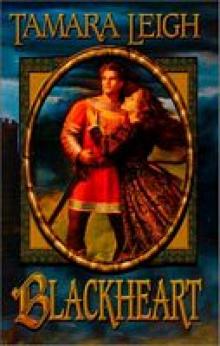 Blackheart
Blackheart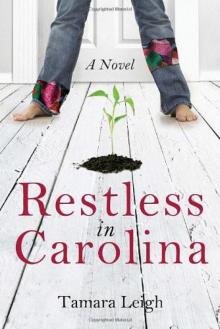 Restless in Carolina
Restless in Carolina THE AWAKENING_A Medieval Romance
THE AWAKENING_A Medieval Romance Baron of Blackwood
Baron of Blackwood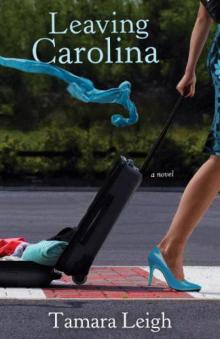 Leaving Carolina
Leaving Carolina HEARTLESS: A Medieval Romance (Age of Conquest Book 4)
HEARTLESS: A Medieval Romance (Age of Conquest Book 4) Baron of Godsmere
Baron of Godsmere Lady Of Eve
Lady Of Eve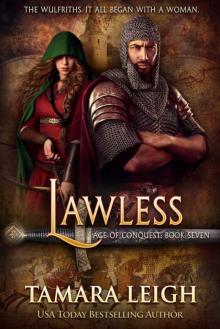 LAWLESS: A Medieval Romance (AGE OF CONQUEST Book 7)
LAWLESS: A Medieval Romance (AGE OF CONQUEST Book 7) Lady Of Fire AKA Pagan Bride
Lady Of Fire AKA Pagan Bride The Yielding (Age of Faith)
The Yielding (Age of Faith) The Redeeming: Book Three (Age of Faith)
The Redeeming: Book Three (Age of Faith) LADY UNDAUNTED: A Medieval Romance
LADY UNDAUNTED: A Medieval Romance THE RAVELING: A Medieval Romance (Age of Faith Book 8)
THE RAVELING: A Medieval Romance (Age of Faith Book 8) LADY EVER AFTER: A Medieval Time Travel Romance (Beyond Time Book 2)
LADY EVER AFTER: A Medieval Time Travel Romance (Beyond Time Book 2)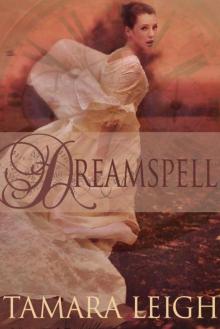 Dreamspell
Dreamspell The Unveiling (Age of Faith)
The Unveiling (Age of Faith) THE RAVELING
THE RAVELING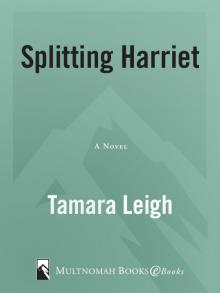 Splitting Harriet
Splitting Harriet Age of Faith 4 - The Kindling
Age of Faith 4 - The Kindling THE RAVELING_A Medieval Romance
THE RAVELING_A Medieval Romance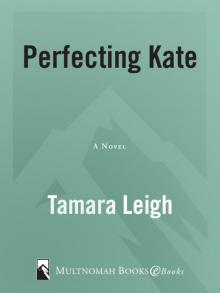 Perfecting Kate
Perfecting Kate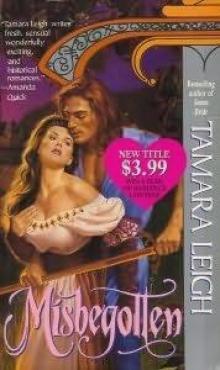 Misbegotten
Misbegotten THE VEXING: A Medieval Romance (AGE OF FAITH Book 6)
THE VEXING: A Medieval Romance (AGE OF FAITH Book 6)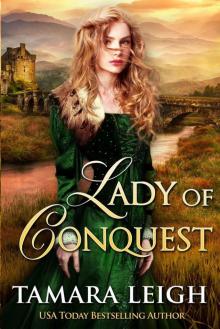 LadyOfConquest:SaxonBride
LadyOfConquest:SaxonBride